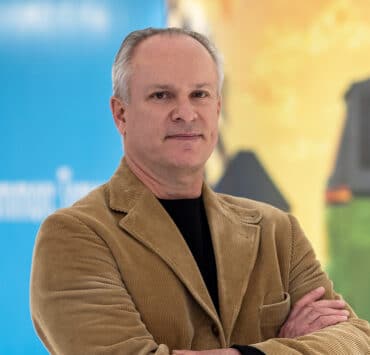|
Getting your Trinity Audio player ready...
|
The memory is vague, but essential, for Chelsey Mutrie. Early in her teens, the current senior project manager (SPM) at Bose Corporation remembers visiting her aunt in California outside of Los Angeles. “We wound up touring some houses that were in the process of being built,” Mutrie recalls. “I just fell in love with the construction and the whole process. The next thing I knew, I was five years into a master’s degree for architecture.”
If the timing seems off, it should. Mutrie was able to corral both a bachelor’s and master’s in architecture into just five years, before realizing her true passion. She loved building, she loved design, but she didn’t want to be an architect.
“The lesson I kept learning was that I really enjoyed the problem-solving part of this job,” Mutrie explains. “I received a lot of project management experience from the get-go, and I was always given so much freedom to figure things out on my own. That’s where my passion was, and I think it’s really ideal for this kind of role.”
Mutrie built out extensive experience in the architectural/design firm space before coming to Bose in 2014. After spending years serving individual clients, coming to Bose, a world-renowned producer of high-end audio products, has required both a transition in perspective as well as a more defined client focus.
“The lesson I kept learning was that I really enjoyed the problem-solving part of this job.”
Chelsey Mutrie
There’s a phrase the SPM leans into a lot: “control the narrative.” It’s been essential in helping her and the company understand the parameters and limits of project space and budget. But, more importantly for Mutrie, it’s about setting the right expectations with Bose employees (who are also her clients) and working to ensure she is delivering experiences and spaces that will serve the company and its people to its utmost potential.
“Controlling the narrative means looking at a project from all sides and making sure that the proper expectations are maintained and making sure I don’t put our real estate team in the position of having to pull back,” Mutrie says. She adds that supporting a global business that is wholly outside of the construction industry means extensive build-outs and extraneous spending just doesn’t make sense for her team, so keeping their projects on-time, on-budget, and on-brand is more important than ever.
Mutrie recently spearheaded an extensive office closure and relocation of part of the company to its main campus just outside of Boston. “A lot of companies are looking at their real estate portfolio due to COVID,” the SPM says. “We had a building that was functioning like its own city, and it just didn’t make sense for us anymore.”
She adds that beyond corporate cost-cutting, Bose had an interest in uniting its sectors to encourage cross collaboration among the teams. Within the last five years, the company’s real estate team members developed building/construction standards to bring cohesion and connection between all of its locations globally, Mutrie says.
It may seem strange that a company whose branding is identifiable on sight (think sleek grays and blacks, efficient yet somehow luxuriant in their subtly) wasn’t applying the same approach to its workspaces. “I think it was really important to connect our spaces to our brand. You think about what our consumers interact with and then you look at some of our spaces, they look like a snapshot out of 1985,” says Mutrie, laughing.
“The more you’re willing to put out there, the more you’re going to get back.”
Chelsey Mutrie
Both the new space build-outs and rehabs are obvious signposts that Mutrie’s making an impact at Bose, but a step back provides even more of a reason to celebrate the construction veteran. Women in construction are often used to being outnumbered by men, but Mutrie says Bose’s evolving perspective on equality and inclusiveness has been noticeable as of late.
Bose announced its first ever female CEO in September of 2020, and Mutrie says the prevalence of women in the company is on the rise. That’s an important consideration for the working mother. She’s proud of the company for evolving its approach to provide additional parental leave options and more flexibility for familial needs. “It’s been heartening to see the company take a broader focus on what life means for people outside of the office,” she adds.
Establishing a strong work/life balance and navigating a corporate career in real estate and architecture can be a challenge for women, who often must go the extra mile to make their voices heard. Mutrie notes that while some women early in their careers are often afraid to speak up, she encourages them to stand up for themselves and share their ideas when they know what needs to be done. It will ultimately lead to the formation of important relationships with both clients and coworkers.
“The more you’re willing to put out there, the more you’re going to get back,” Mutrie says. “Those relationships will be there after the job is done. It’s important to think about who you look up to and foster those ties.”


